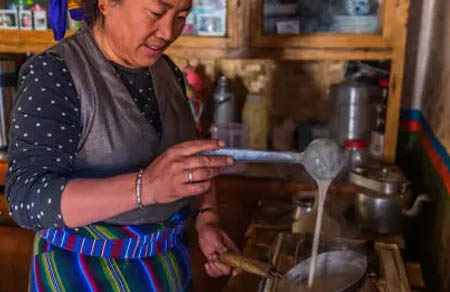
Nepal Government's Response to Cooperative Scams: Justice, Compensation, and A Secure Financial Future
December 25, 2024The Nepal government takes strides to combat cooperative fraud with new regulatory measures and stricter legal actions. While delayed, these efforts aim to restore depositor trust and strengthen the financial sector.
A Legacy of Neglect: The Rise of Cooperative Scams
The cooperative sector in Nepal, long considered a vehicle for community-based financial empowerment, has been plagued by scandals in recent years. Rampant fraud, mismanagement, and financial crimes have undermined public trust. As savers protested on the streets, demanding justice, and accused fraudsters expanded their networks abroad, the government’s delayed response faced severe criticism. With billions of rupees embezzled, thousands of depositors left in despair, and key suspects absconding, the cooperative crisis demanded immediate action.
Amid this chaos, the introduction of an ordinance by the Nepal government to address the crisis marks a significant, albeit overdue, step forward. This ordinance introduces the National Cooperative Regulatory Authority, a specialized body to oversee cooperatives and prevent financial misconduct.
Regulatory Authority: A New Dawn for Oversight
The National Cooperative Regulatory Authority is designed to introduce accountability and transparency into the sector. Chaired by a chartered accountant and supported by experts, it centralizes the supervision of savings and loan cooperatives. By repealing outdated laws, such as the National Cooperative Development Board Act, and transferring its assets and liabilities to the new entity, the government seeks to start afresh.
This new authority also wields extensive powers:
- Mandating registration and classification of cooperatives at local, provincial, or federal levels.
- Imposing membership restrictions to avoid conflicts of interest and monitoring loans exceeding Rs 1 million.
- Establishing a Cooperative Savings and Loan Guarantee Fund to safeguard depositors.
These measures aim to rebuild trust and create a robust framework for cooperative governance.
Key Reforms for Depositor Protection
The ordinance places a sharp focus on depositor welfare. Immediate measures ensure repayments of savings up to Rs 500,000, with provisions for larger amounts based on structured criteria. Cooperatives are required to recover misappropriated assets and use them to reimburse depositors. Additionally, enhanced powers allow cooperatives to auction collateral when borrowers default, further aiding recovery.
To prevent future fraud, the ordinance enforces disclosure of income sources for investments exceeding Rs 1 million. By associating cooperatives with the Credit Information Center, the government seeks to monitor financial transactions effectively and flag irregularities early.
Fraudsters at Large: A Diplomatic and Legal Challenge
Despite these measures, one glaring issue remains unresolved—the inability to apprehend key fraudsters who have fled abroad. High-profile figures like GB Rai, accused in multiple cooperative fraud cases across Nepal, continue to evade arrest. Despite Interpol red notices, including one issued over a year ago, law enforcement efforts have fallen short.
GB Rai’s alleged misuse of funds to expand business networks abroad, including purchasing properties, highlights the diplomatic and procedural failures of Nepal's government. Other fugitives, such as Bharat Maharjan and Jyoti Gurung, also remain unaccounted for, further deepening the crisis.
Legal Action Intensifies
Recent developments signal a tougher stance against cooperative fraud. In Pokhara, an additional charge sheet was filed against GB Rai and 18 others in the Surya Darshan Cooperative case, demanding Rs 1.51 billion in restitution. This includes charges of money laundering and organized crime.
The investigation revealed shocking details, such as loans issued to fake debtors and collusion with software developers to embezzle funds. Yet, the road to justice remains arduous, with nine key suspects still absconding.
Toward a Safer Financial Future
The government’s current efforts, though late, represent a critical step toward reforming Nepal’s cooperative sector. By establishing the National Cooperative Regulatory Authority, introducing strict regulations, and intensifying legal action, the state aims to restore depositor confidence and rebuild trust in the cooperative movement.
However, the success of these reforms hinges on the government’s ability to bring fugitives to justice and recover embezzled funds. Diplomatic engagement, stronger international cooperation, and efficient enforcement will be essential to address these gaps.
As Nepal takes strides to address the crisis, the cooperative sector must emerge not just reformed but transformed—ushering in a new era of financial stability, transparency, and accountability. For the thousands of depositors who have endured financial losses, justice delayed must not mean justice denied.
As the victims continue to await justice, the government’s response remains slow and insufficient. Although investigations are ongoing and parliamentary committees have been formed, the political will to tackle the issue head-on is lacking.
For years, people trusted the cooperative system, which was seen as a safer alternative to traditional banking. However, as the scam spread, it became clear that many cooperatives had been involved in fraudulent practices, with no accountability or safeguards in place to protect depositors.
Subscribe for Expert Economic InsightsDespite the gravity of the situation, both the government and political parties seem indifferent, allowing this scam to persist for nearly 24 years without significant action. Be in touch with us!
Read More From Us
- 🌟🌟🌟🌟🌟 For more International Breaking News visit us at International News
- 🌟🌟🌟🌟 For More Russia-Ukraine War updates, click here
- 🌟🌟🌟🌟🌟 For more International Trade Business news, hit here
Tags: #NepalCooperatives #RegulatoryAuthority #FinancialTransparency #CooperativeScams #GovernmentResponse #FinancialSecurity #CooperativeReforms #NepalEconomy #JusticeForVictims #CooperativeOversight #FinancialFuture #TransparencyInCooperatives #GlobalPostHeadline
Thank you for reading: globalpostheadline.com





